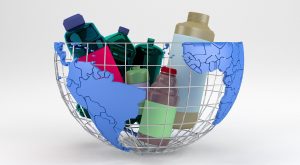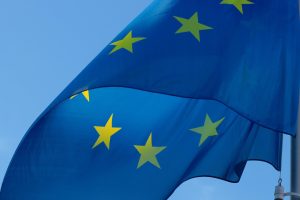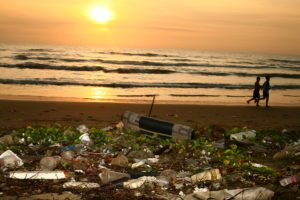Plastic is a very important material for developed economies and will continue to be so in the coming years. However, it is essential to continue working on reducing its environmental impact, for which it is necessary to achieve greater growth in the use of recycling systems that serve to reuse it, reducing its carbon footprint as much as possible.
Repetco, for example, offers a proprietary, patented system that is environmentally friendly through post-consumer food multilayer PET/PE packaging. Through a unique process, rPET pellets and rPET are generated that can be reused in the food industry with multilayer PET/PE trays and sheet packaging; in bottles for soft drinks or detergents; and in fibers for the textile and automotive industry.
Challenges in the Spanish market
In Spain, recycling is high and constant, but there are significant challenges in this field for the future. According to a report by Cicloplast, each citizen recycles around 13 kilos of plastic at home each year, which places the country as the second best in Europe only behind the Czech Republic. In 2020, more than 600,000 tons of plastic were deposited in a yellow container in Spain.
The problem, however, lies not so much in recycling itself but in what happens at the landfill. Other neighboring countries on the continent are more efficient in terms of recovery, but in Spain landfill recycling is even below the EU average. This is a challenge to be solved in the coming years, given that, among the circular economy objectives set by the European Union (EU), there is one that requires recycling of plastic packaging to exceed 50% of the total by 2025. As if that were not enough, the Ministry of Ecological Transition and the Demographic Challenge has raised this commitment to 60% by 2030.
Another report, in this case by the Innovation and Development Center for the Circular Economy (CIDEC), points out that there is a mismatch between supply and demand for r-PET in the country that needs to be resolved, so that this “can be translated into opportunities to improve the efficiency of collection and recycling processes, undertaking new investments and modernizing the competitive capacity of the r-PET industry in Spain”. In addition, the study concludes that a secondary market for r-PET must be urgently promoted “both for its lower environmental impacts and for the opportunity to create jobs linked to the recycling processes and the investments needed to renew the country’s industrial capacity”.
There is a mismatch in Spain between supply and demand for rPET that needs to be addressed, says CIDEC
Necessary impulse
Another of the important elements highlighted in the report is that, at present, the deficiency in the supply of rPET in Spain is being made up using virgin PET, with the negative implications this has for the environment. To complement this statement, the report cites as an example the fact that if there were a market in Spain capable of producing 100% r-PET bottles, 2.4 grams of CO2 would be saved for each gram of container.
Among the measures to reverse this situation, it is pointed out, for example, that taxes on non-reusable plastic packaging should be increased to stimulate a greater commitment to rPET (promoting a tax exemption for those who use this material), increasing the procedures for offering rPET on the market or improving the processes for collecting plastic already used for its subsequent recycling.
For the time being, the draft bill of the new Law on Waste and Contaminated Soil sets limitations on the manufacture and use of single-use plastic products and establishes their gradual disappearance, since their commercialization will be reduced by 50% in 2026 with respect to 2022 and by 70% by 2030. In addition, the free distribution of single-use plastics will end in 2023 and a series of design requirements are set to introduce recycled plastic into the market and increase its demand and value.
Other articles of interest: The future challenges of the household plastics sector







